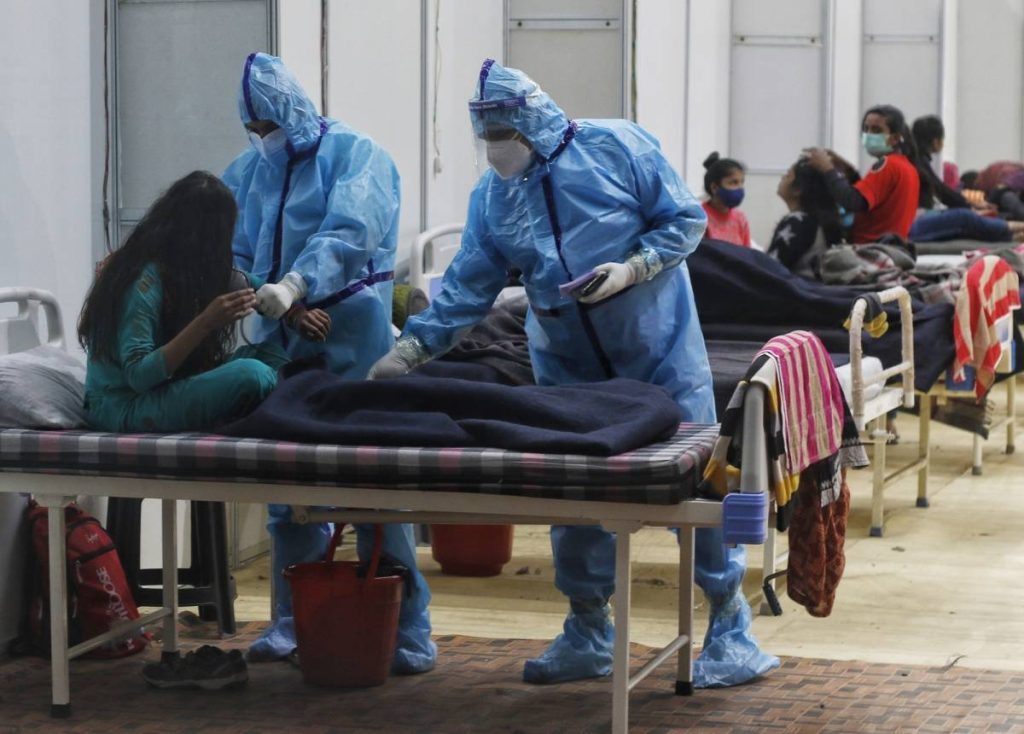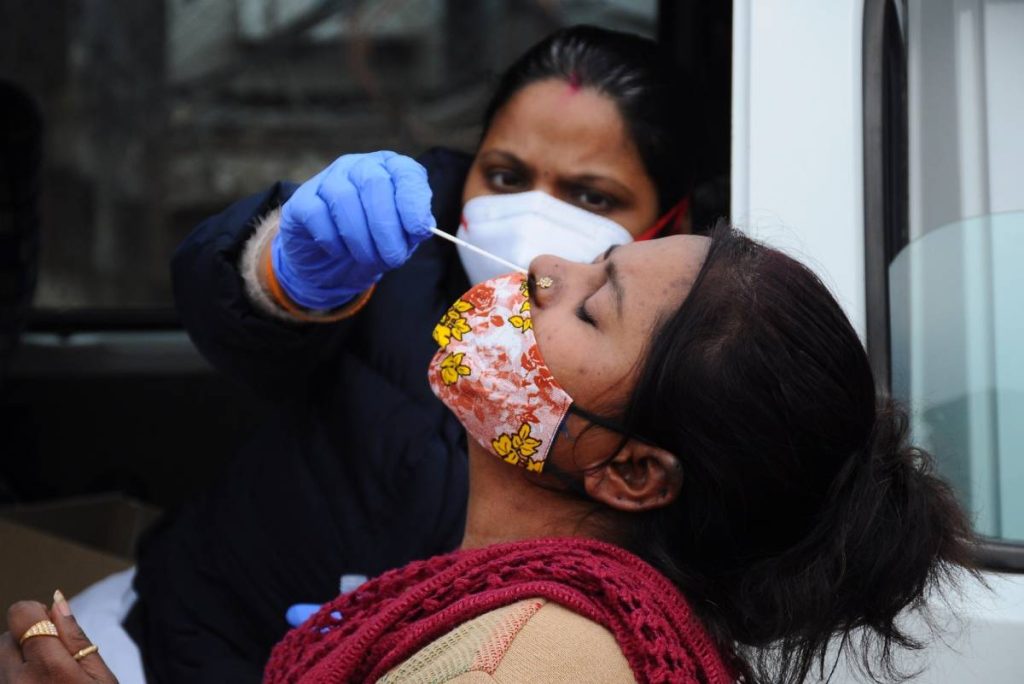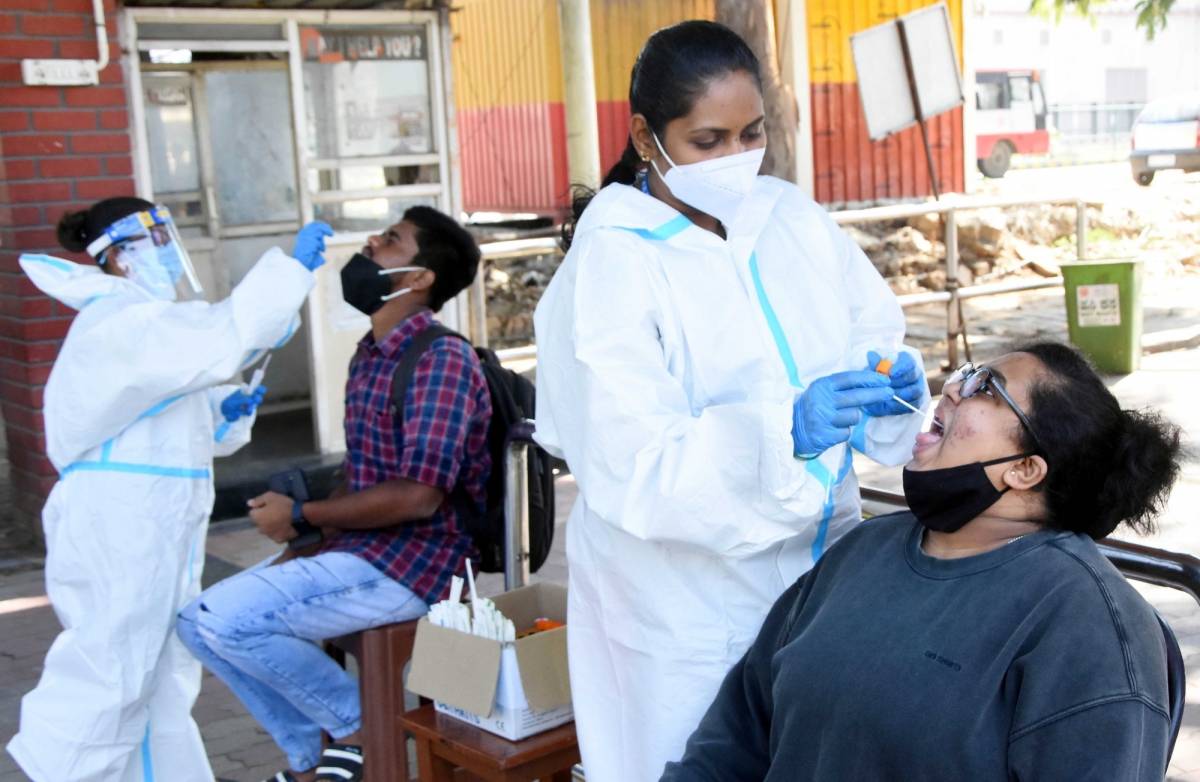Delhi’s close to 20 per cent corona infection rate which is the highest in the last 7 months….reports Asian Lite News
The national capital reported 917 new COVID cases in the last 24 hours with a case positivity rate of 19.20 per cent, according to a bulletin by the Delhi Health Department on Tuesday.
Delhi’s close to 20 per cent corona infection rate which is the highest in the last 7 months. Before that on January 20, the infection rate was 21.48 per cent.
During the last 24 hours, 4775 tests have been conducted in Delhi, in which 917 new cases have been reported.
There are currently 6,867 active COVID cases in the national capital.
Three patients succumbed to the virus during this period. The death toll in the city is 26,392.
According to the Ministry, there have been 1,566 recoveries and 03 Covid deaths in the national capital in the past 24 hours.
As many as 6,724 people were vaccinated in the city out of which 216 people were jabbed with the first dose of the COVID-19 vaccine while 1,072 people were inoculated with the second dose.
Deputy Chief Minister Manish Sisodia on Tuesday said 90 per cent of Covid-19 patients at city hospitals are doubly vaccinated and only 10 per cent took a precautionary dose.
“Did a detailed review of the situation of Corona in Delhi with the officials today Currently 90 per cent of Delhi’s new COVID hospitalization cases have not administered the third dose. This is clear proof that the third dose is helping a lot in the defence against COVID,” tweeted Deputy CM Sisodia.
Meanwhile, India on Tuesday reported 15,040 new Covid cases and 29 deaths, said the Union Health Ministry.
The new fatalities increased the nationwide death toll to 5,27,098.
The active caseload has marginally declined to 1,11,252, accounting for 0.25 per cent of the country’s total positive cases.
The recovery of 15,040 patients in the last 24 hours took the cumulative tally to 4,36,38,844. Consequently, India’s recovery rate stands at 98.56 per cent.
While the daily positivity rate has dipped to 4.15 per cent, the weekly positivity rate stood at 4.79 per cent.
Also in the same period, a total of 2,12,129 tests were conducted across the country, increasing the overall tally to over 88.06 crore.
As of Tuesday morning, India’s Covid-19 vaccination coverage exceeded 208.31 crore, achieved via 2,76,96,728 sessions
Over 3.97 crore adolescents have been administered with a first dose of Covid-19 jab since the beginning of vaccination drive for this age bracket.

Chest pain, diarrhoea more common
Amid rising daily Covid cases, patients are presenting more non-specific symptoms like diarrhoea and chest pain leading to heart attacks, experts said here on Tuesday.India on Tuesday reported 8,813 fresh Covid cases and 29 deaths, according to the Union Health Ministry. The national capital had reported 1,227 new infections and eight deaths on Monday.
While patients commonly complain of headache, fever, cough, cold, throat irritation and bodyache, they are also presenting newer symptoms now.
“The number of acute coronary syndrome, myocardial infarction (heart attack) is increasing in Covid positive patients. There are patients who report non-specific symptoms like chest pain, decreased urine output, diarrhoea and then turn out to be Covid positive,” Akshay Budhraja, senior consultant, respiratory and sleep medicine at Aakash Healthcare, told IANS.
“A lot of patients with comorbidities like chronic kidney disease, stroke, hypertension are also contracting Covid and their pre-existing condition is worsening after getting infected with Covid,” he added.

According to Rajesh Chawla, senior consultant, respiratory medicine and pulmonology, Indraprastha Apollo Hospital, Covid patients are also presenting “giddiness, extreme weakness and temporary loss of smell and taste”.
“Fever or chills, cough, shortness of breath or difficulty breathing, fatigue, muscle or body aches, headache, new loss of taste or smell, sore throat, congestion or runny nose, nausea or vomiting and diarrhoea are the other common symptoms observed in current patients,” Chawla told IANS.
However, the recovery period for most patients is a week, he noted.
Meanwhile, a study of genome sequencing in Delhi has detected the presence of Omicron’s sub-variant BA 2.75 — known to have a higher transmission rate.
The new sub-variant has been detected in the study of 90 samples sent for genome sequencing at Delhi’s Lok Nayak Jai Prakash Narayan Hospital.
According to the World Health Organization’s chief scientist Soumya Swaminathan, BA.2.75 appeared to have mutated in a way that could indicate “major immune escape”. The new sub-variant has the potential to infect people who already have antibodies from previous vaccination as well as have been vaccinated earlier.
While BA.2.75 may be driving the surge in infections, the variant is not dangerous. Swaminathan noted that it showed a “clear growth advantage” over other variants in India, yet “it is too early to know that this sub-variant has properties of being more clinically severe”.
So what’s behind the rising death rate?
“The deaths are not entirely because of Covid infection, a few are because of pre-existing chronic lung, heart, kidney disease. But the incidence of acute heart failure has increased in patients with Covid, although a clear direct relation between the two has not been established yet,” Budhraja said.
“The subsequent increase in the number of deaths is majorly with people who come with underlying medical problems like cardiovascular disease, diabetes, chronic respiratory disease, and cancer etc,” Chawla added.
Avi Kumar, senior consultant, pulmonolgy, from Fortis Escorts Heart Institute, said that incidents of pneumonia due to Covid or hospitalisation including ICU admission are very different from early Covid waves.
They are mainly required in patients who are having comorbidities, he added. He stressed on the need for increasing the virus surveillance and also suggested people to follow Covid appropriate behaviour like wearing masks, hand hygiene practices.














